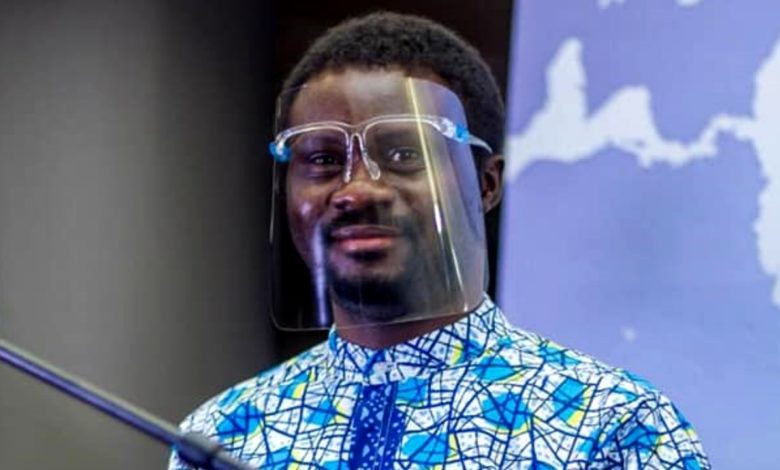Sierra Leone Supreme Court Penalises Lawyer For Criticising Controversial Ruling

Sierra Leone’s Supreme Court, in a ruling delivered on Friday, has convicted human rights lawyer and social commentator, Augustine Sorie-Sengbe Marrah, for criticising a decision of the court in a social media post.
A panel of five judges had, on Monday, upheld a presidential appointment to the position of Commissioner of the Anti-Corruption Commission (ACC).
The appointment had been criticised by some on the grounds that the appointee, Francis Ben Kaifala, did not meet the criteria necessary to qualify to become a high court judge. The position requires a minimum of 10 years’ legal practice, and Marrah had raised this observation through his Twitter account on October 26.
“Politics has yet again been elevated above the law in today’s judgment by the Supreme Court. This is egregious chipping of the sanctity of the law,” he wrote.
“We raised this same eyebrow when the Vice President’s illegal sacking was judicially laundered. Only those allied with politics will jubilate today.”
The Supreme Court then issued a bench warrant suspending his rights to practise before any courts in Sierra Leone and suspending the rule that says lawyers can not be arrested within court premises “until the arrest of the said Augustine Sorie-Sengbe Marah”. The same day, President Julius Maada Bio of Sierra Leone abolished defamation as a crime.
The Nations news website published that Marrah was reported to have gone into hiding after judges at the Supreme Court ordered his arrest and stripped him of his immunity against being apprehended within court premises.
The court convicted Marrah on a charge of contempt and ordered him to retract his publication and make an apology to be published at his expense in three national dailies. The Council of the Bar was also asked to discipline him for professional misconduct.
Many Sierra Leoneans took to social media to challenge the court’s decision.
“Deeply concerned about the safety and wellbeing of @Soe_Marrah, an activist from Sierra Leone,” tweeted Vickie Remoe. “A judge has issued a bench warrant and barred him from practice ― his crime? Exercising freedom of speech. Asking that you bear witness to this and #StandWithAugustineMarah.”
Nigerian lawyer and human rights activist, Professor Chidi Odinkalu, also took to Twitter to share his displeasure on the case.
“There are many things wrong with what the Supreme Court of Sierra Leone did to @soe_marrah. First, even assuming there was contempt here, it was not in the face of the court. The correct process is for a complaint to be lodged with the Attorney-General who will initiate charges,” he observed on Saturday.
“Second, given that contempt outside the face of the court is a matter for the Attorney-General, the Supreme Court, as an appellate instance, lacks first instance or summary jurisdiction over it. The place to prosecute it is the High Court, not the Supreme Court.
“Third, the judges were out of line when they insisted on requiring @soe_marrah to violate his constitutional entitlement against self-incrimination.
“Fourth, having sentenced him to punishment, the judges exposed their dispositions to the flaw of the prohibition against double jeopardy by insisting on requiring the General Bar Council to discipline @Soe_Marrah, when they could easily have just done that alone to begin with.”
He criticised the Supreme Court for disregarding provisions of the country’s constitution that guaranteed the freedom of expression and noted that the case is part of a trend of judges using “the cover of judicial power & appearance of legal process to foreclose accountability”.
A campaign, I Stand With Lawyer Augustine Sengbeh Marrah, has been trending on social media, including Facebook and Twitter.
The Sierra Leone Association of Journalists joined in the condemnation of the court’s decision, calling for its reversal. But, in yet another sign of division within the legal profession, the Sierra Leone Bar Association appeared to blame the situation on Marrah for his failure to respect the court.
Support Our Journalism
There are millions of ordinary people affected by conflict in Africa whose stories are missing in the mainstream media. HumAngle is determined to tell those challenging and under-reported stories, hoping that the people impacted by these conflicts will find the safety and security they deserve.
To ensure that we continue to provide public service coverage, we have a small favour to ask you. We want you to be part of our journalistic endeavour by contributing a token to us.
Your donation will further promote a robust, free, and independent media.
Donate HereStay Closer To The Stories That Matter




